- About me
- Publications
- Ren. in El. Markets
- Module 1 – Fundamentals of electricity markets
- Module 2 – Electricity spot markets (e.g., day-ahead)
- Module 3 – Intra-day and balancing markets
- Module 4 – Ancillary services
- Module 5 – Impact of renewables on electricity markets
- Module 6 – Participation of renewables in electricity markets
- Module 7 – Introduction to renewable energy analytics
- Module 8 – Verification of renewable energy forecasts
- Module 9 – Renewable energy forecasting – First steps
- Module 10 – Renewable energy forecasting – Advanced topics
- Additional industry interviews
- Interviews with former students
- Exercises
- Int. J. Forecasting
- Contact
- Download CV
Publications
Filter by type:

Wind energy forecasting with missing values within a fully conditional specification framework
2024ArticleJournal paper
International Journal of Forecasting 40(1), pp. 77-95
Publication year: 2024
Wind power forecasting is essential to power system operation and electricity markets. As abundant data became available thanks to the deployment of measurement infrastructures and the democratization of meteorological modeling, extensive data-driven approaches have been developed within both point and probabilistic forecasting frameworks. These models usually assume that the dataset at hand is complete and overlook missing value issues that often occur in practice. In contrast to that common approach, we rigorously consider here the wind power forecasting problem in the presence of missing values, by jointly accommodating imputation and forecasting tasks. Our approach allows inferring the joint distribution of input features and target variables at the model estimation stage based on incomplete observations only. We place emphasis on a fully conditional specification method owing to its desirable properties, e.g., being assumption-free when it comes to these joint distributions. Then, at the operational forecasting stage, with available features at hand, one can issue forecasts by implicitly imputing all missing entries. The approach is applicable to both point and probabilistic forecasting, while yielding competitive forecast quality within both simulation and real-world case studies. It confirms that by using a powerful universal imputation method based on fully conditional specification, the proposed universal imputation approach is superior to the common impute-then-predict approach, especially in the context of probabilistic forecasting.

Many industries rely on data-driven analytics, yet useful datasets are often distributed amongst market competitors that are reluctant to collaborate and share information. Recent literature proposes analytics markets to provide monetary incentives for data sharing, however many of these market designs are vulnerable to malicious forms of replication — whereby agents replicate their data and act under multiple identities to increase revenue. We develop a replication-robust analytics market, centering on supervised learning for regression. To allocate revenue, we use a Shapley value-based attribution policy, framing the features of agents as players and their interactions as a characteristic function game. We show that there are different ways to describe such a game, each with causal nuances that affect robustness to replication. Our proposal is validated using a real world wind power forecasting case study.

Strategic coalition for data pricing in IoT data markets
2024ArticleJournal paper
IEEE Internet of Things Journal 11(4), pp. 6454-6468
Publication year: 2024
This paper establishes a market for trading Internet of Things (IoT) data that is used to train machine learning models. The data, either raw or processed, is supplied to the market platform through a network, and the price of such data is controlled based on the value it brings to the machine learning model under the adversity of the correlation property of data. Eventually, a simplified distributed solution for a data trading mechanism is derived that improves the mutual benefit of devices and the market. Our key proposal is an efficient algorithm for data markets that jointly addresses the challenges of availability and heterogeneity in participation, as well as the transfer of trust and the economic value of data exchange in IoT networks. The proposed approach establishes the data market by reinforcing collaboration opportunities between devices with correlated data to limit information leakage. Therein, we develop a networkwide optimization problem that maximizes the social value of coalition among the IoT devices of similar data types; at the same time, it minimizes the cost due to network externalities, i.e., the impact of information leakage due to data correlation, as well as the opportunity costs. Finally, we reveal the structure of the formulated problem as a distributed coalition game and solve it following the simplified split-and-merge algorithm. Simulation results show the efficacy of our proposed mechanism design toward a trusted IoT data market, with up to 32.72% gain in the average payoff for each seller.

Seamless and multi-resolution energy forecasting
Forecasting is pivotal in energy systems, by providing fundamentals for operation at different horizons and resolutions. Though energy forecasting has been widely studied for capturing temporal information, very few works concentrate on the frequency information provided by forecasts. They are consequently often limited to single-resolution applications (e.g., hourly). Here, we propose a unified energy forecasting framework based on Laplace transform in the multi-resolution context. The forecasts can be seamlessly produced at different desired resolutions without re-training or post-processing. Case studies on both energy demand and supply data show that the forecasts from our proposed method can provide accurate information in both time and frequency domains. Across the resolutions, the forecasts also demonstrate high consistency. More importantly, we explore the operational effects of our produced forecasts in the day-ahead and intra-day energy scheduling. The relationship between (i) errors in both time and frequency domains and (ii) operational value of the forecasts is analysed. Significant operational benefits are obtained.

Robust generation dispatch with purchase of renewable power and load predictions
2024ArticleIn press/Available onlineJournal paper
IEEE Transactions on Sustainable Energy, in press/available online
Publication year: 2024
The increasing use of renewable energy sources (RESs) and responsive loads has made power systems more uncertain. Meanwhile, thanks to the development of advanced metering and forecasting technologies, predictions by RESs and load owners are now attainable. Many recent studies have revealed that pooling the predictions from RESs and loads can help the operators predict more accurately and make better dispatch decisions. However, how the prediction purchase decisions are made during the dispatch processes needs further investigation. This paper fills the research gap by proposing a novel robust generation dispatch model considering the purchase and use of predictions from RESs and loads. The prediction purchase decisions are made in the first stage, which influence the accuracy of predictions from RESs and loads, and further the uncertainty set and the worst-case second-stage dispatch performance. This two-stage procedure is essentially a robust optimization problem with decision dependent uncertainty (DDU). A mapping-based column-and-constraint generation (C&CG) algorithm is developed to overcome the potential failures of traditional solution methods in detecting feasibility, guaranteeing convergence, and reaching optimal strategies under DDU. Case studies demonstrate the effectiveness, necessity, and scalability of the proposed model and algorithm.
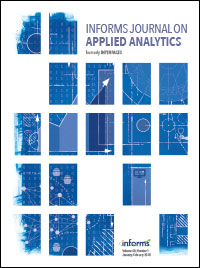
Passenger ferry operations in the digital era: Forecasting and revenue management at Molslinjen
2024ArticleJournal paperPreprint
INFORMS Journal of Applied Analytics, under review (invited paper - winner of the INFORMS Edelman Award 2024)
Publication year: 2024
Molslinjen, one of the world’s largest operators of fast-moving catamaran ferries, based in Denmark, adopted a strategical focus on digitalization to profoundly change their operations and business practice. They partnered with Halfspace, a data, analytics and AI company based in Copenhagen, Denmark, to support that transition. Halfspace and Molslinjen have jointly developed and deployed a successful forecasting and revenue management toolbox for the data-driven operation of ferries in Denmark, rolled out operationally since 2020. This has resulted in \$2.6-3.2 million yearly savings, significant reduction in number of delayed departures and average delays, and a 3% reduction in fuel costs and emissions. This toolbox relies on some of the latest advances in machine learning for forecasting and in analytics approaches to revenue management. The potential for generalizing to the global ferry industry is significant, with an impact on both revenues and ESG criteria.
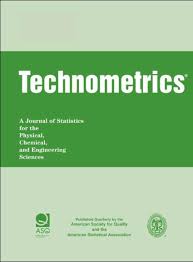
On tracking varying bounds when forecasting bounded time series
2024ArticleIn press/Available onlineJournal paper
Technometrics, in press/available online
Publication year: 2024
We consider a new framework where a continuous, though bounded, random variable has unobserved bounds that vary over time. In the context of univariate time series, we look at the bounds as parameters of the distribution of the bounded random variable. We introduce an extended log-likelihood estimation and design algorithms to track the bound through online maximum likelihood estimation. Since the resulting optimization problem is not convex, we make use of recent theoretical results on stochastic quasiconvex optimization, to eventually derive an Online Normalized Gradient Descent algorithm. We illustrate and discuss the workings of our approach based on both simulation studies and a real-world wind power forecasting problem.
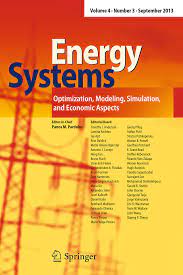
On the efficiency of energy markets with non-merchant storage
2024ArticleIn press/Available onlineJournal paper
Energy Systems, in press/available online
Publication year: 2024
Energy market designs with non-merchant storage have been proposed in recent years, with the aim of achieving optimal integration of storage. In order to handle the time linking constraints that are introduced in such markets, existing works commonly make simplifying assumptions about the end-of-horizon storage level. This work analyses market properties under such assumptions, as well as in their absence. We find that, although they ensure cost recovery for all market participants, these assumptions generally lead to market inefficiencies. Therefore we consider the design of markets with non-merchant storage without such simplifying assumptions. Using an illustrative example, as well as detailed proofs, we provide conditions under which market prices in subsequent market horizons fail to reflect the value of stored energy. We show that this problem is essential to address in order to preserve market efficiency and cost recovery. Finally, we propose a method for restoring these market properties in a perfect-foresight setting.

This paper studies how to aggregate prosumers (or large consumers) and their collective decisions in electricity markets, with a focus on fairness. Fairness is essential for prosumers to participate in aggregation schemes. Some prosumers may not be able to access the energy market directly, even though it would be beneficial for them. Therefore, new companies offer to aggregate them and promise to treat them fairly. This leads to a fair resource allocation problem.
We propose to use acceptability constraints to guarantee that each prosumer gains from the aggregation.
Moreover, we aim to distribute the costs and benefits fairly, taking into account the multi-period and uncertain nature of the problem. Rather than using financial mechanisms to adjust for fairness issues, we focus on various objectives and constraints, within decision problems, that achieve fairness by design. We start from a simple single-period and deterministic model, and then generalize it to a dynamic and stochastic setting using, e.g., stochastic dominance constraints.

Bayesian regression markets
Machine learning tasks are vulnerable to the quality of data used as input. Yet, it is often challenging for firms to obtain adequate datasets, with them being naturally distributed amongst owners, that in practice, may be competitors in a downstream market and reluctant to share information. Focusing on supervised learning for regression tasks, we develop a regression market to provide a monetary incentive for data sharing. Our proposed mechanism adopts a Bayesian framework, allowing us to consider a more general class of regression tasks. We present a thorough exploration of the market properties, and show that similar proposals in current literature expose the market agents to sizeable financial risks, which can be mitigated in our probabilistic setting.

A market for trading forecasts: A wagering mechanism
2024ArticleJournal paper
International Journal of Forecasting 40(1), pp. 142-159
Publication year: 2024
In many areas of industry and society, e.g., energy, healthcare, logistics, agents collect vast amounts of data that they deem proprietary. These data owners extract predictive information of varying quality and relevance from data depending on quantity, inherent information content and their own technical expertise. Aggregating these data and heterogeneous predictive skills, which are distributed in terms of ownership, can result in a higher collective value for a prediction task. In this paper, we envision a platform for improving predictions via implicit pooling of private information in return for possible remuneration. Specifically, we design a wagering-based forecast elicitation market platform, where a buyer intending to improve their forecasts posts a prediction task, and sellers respond to it with their forecast reports and wagers. This market delivers an aggregated forecast to the buyer (pre event) and allocates a payoff to the sellers (post-event) for their contribution. We propose a payoff mechanism and prove that it satisfies several desirable economic properties, including those specific to electronic platforms. Furthermore, we discuss the properties of the forecast aggregation operator and scoring rules to emphasise their effect on the sellers’ payoff. Finally, we provide numerical examples to illustrate the structure and properties of the proposed market platform.

What may future electricity markets look like?
2023ArticleJournal paper
Journal of Modern Power System and Clean Energy 11(3), pp. 698-706 (invited)
Publication year: 2023
Should the organization, design and functioning of electricity markets be taken for granted? Definitely not. While decades of evolution of electricity markets in developed countries made us believe that we may have found the right and future-proof model, the substantially and rapidly evolving context of our power and energy systems is challenging this idea in many ways. Actually, that situation brings both challenges and opportunities. Challenges include accommodation of renewable energy generation, decentralization and support to investment, while opportunities are mainly that advances in technical and social sciences provide us with many more options in terms of future market design. We here take a holistic point of view, by trying to understand where we are coming from with electricity markets and where we may be going. Future electricity markets should be made fit for purpose by considering them as a way to organize and operate a socio-techno-economic system.

Privacy-preserving convex optimization: When differential privacy meets stochastic programming
Convex optimization finds many real-life applications, where – optimized on real data – optimization results may expose private data attributes (e.g., individual health records, commercial information, etc.), thus leading to privacy breaches. To avoid these breaches and formally guarantee privacy to optimization data owners, we develop a new privacy-preserving perturbation strategy for convex optimization programs by combining stochastic (chance-constrained) programming and differential privacy. Unlike standard noise-additive strategies, which perturb either optimization data or optimization results, we express the optimization variables as functions of the random perturbation using linear decision rules; we then optimize these rules to accommodate the perturbation within the problem’s feasible region by enforcing chance constraints. This way, the perturbation is feasible and makes different, yet adjacent in the sense of a given distance function, optimization datasets statistically similar in randomized optimization results, thereby enabling probabilistic differential privacy guarantees. The chance-constrained optimization additionally internalizes the conditional value-at-risk measure to model the tolerance towards the worst-case realizations of the optimality loss with respect to the non-private solution. We demonstrate the privacy properties of our perturbation strategy analytically and through optimization and machine learning applications.

Data markets facilitate decentralized data exchange for applications such as prediction, learning, or inference. The design of these markets is challenged by varying privacy preferences as well as data similarity among data owners. Related works have often overlooked how data similarity impacts pricing and data value through statistical information leakage. We demonstrate that data similarity and privacy preferences are integral to market design and propose a query-response protocol using local differential privacy for a two-party data acquisition mechanism. In our regression data market model, we analyze strategic interactions between privacy-aware owners and the learner as a Stackelberg game over the asked price and privacy factor. Finally, we numerically evaluate how data similarity affects market participation and traded data value.
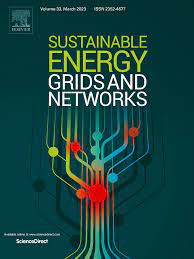
P2P market coordination methodologies with distribution grid management
2023ArticleJournal paper
Sustainable Energy, Grids and Networks 34, art. no. 101075
Publication year: 2023
As prosumers and energy communities gain prominence in power systems, energy trading between prosumers in local P2P markets is paramount. Within this novel market design, peers can directly exchange energy with each other, leading to economic advantages while supporting the decarbonization of the sector. To ensure that voltage and congestion issues are properly addressed, a thorough coordination between the P2P market and the Distribution System Operator is required. This paper presents and compares three mutual-benefit coordination methods. The first method entails applying product differentiation on an iterative basis to avoid exceeding the lines thermal limits, which is performed through penalties on P2P exchanges that may be overloading the network. The second method uses the P2P market with an AC-OPF, ensuring network operation through a flexibility market via upward and downward flexibility. The last one proposes an integrated operation of the P2P market with AC-OPF. All methods are assessed in a typical distribution network with high prosumers integration. The results show that the second method is the one that, fulfilling the network constraints, presents greater social welfare.
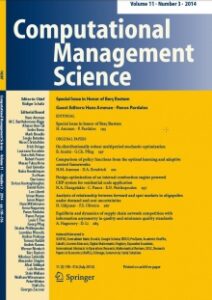
Online decision-making for trading wind energy
We propose and develop a new algorithm for trading wind energy in electricity markets, within an online learning and optimization framework. In particular, we combine a component-wise adaptive variant of the gradient descent algorithm with recent advances in the feature-driven newsvendor model. This results in an online offering approach capable of leveraging data-rich environments, while adapting to the nonstationary characteristics of energy generation and electricity markets, also with a minimal computational burden. The performance of our approach is analyzed based on several numerical experiments, showing both better adaptability to nonstationary uncertain parameters and significant economic gains.

On the design of decentralised data markets

On machine learning-based techniques for future sustainable and resilient energy systems
2023ArticleJournal paper
IEEE Transactions on Sustainable Energy 14(2), pp. 1230-1243
Publication year: 2023
Permanently increasing penetration of converter-interfaced generation and renewable energy sources (RESs) makes modern electrical power systems more vulnerable to low probability and high impact events, such as extreme weather, which could lead to severe contingencies, even blackouts. These contingencies can be further propagated to neighbouring energy systems over coupling components/technologies and consequently negatively influence the entire multi-energy system (MES) (such as gas, heating and electricity) operation and its resilience. In recent years, machine learning-based techniques (MLBTs) have been intensively applied to solve various power system problems, including system planning, or security and reliability assessment. This paper aims to review MES resilience quantification methods and the application of MLBTs to assess the resilience level of future sustainable energy systems. The open research questions are identified and discussed, whereas the future research directions are identified.
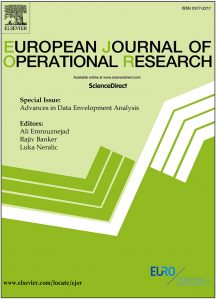
Moving from linear to conic markets for electricity
2023ArticleJournal paper
European Journal of Operational Research 309(2), pp. 762-783
Publication year: 2023
We propose a new forward electricity market framework that admits heterogeneous market participants with second-order cone strategy sets, who accurately express the nonlinearities in their costs and constraints through conic bids, and a network operator facing conic operational constraints. In contrast to the prevalent linear-programming-based electricity markets, we highlight how the inclusion of second-order cone constraints improves uncertainty-, asset-, and network-awareness of the market, which is key to the successful transition towards an electricity system based on weather-dependent renewable energy sources. We analyze our general market-clearing proposal using conic duality theory to derive efficient spatially-differentiated prices for the multiple commodities, comprised of energy and flexibility services. Under the assumption of perfect competition, we prove the equivalence of the centrally-solved market-clearing optimization problem to a competitive spatial price equilibrium involving a set of rational and self-interested participants and a price setter. Finally, under common assumptions, we prove that moving towards conic markets does not incur the loss of desirable economic properties of markets, namely market efficiency, cost recovery, and revenue adequacy. Our numerical studies focus on the specific use case of uncertainty-aware market design and demonstrate that the proposed conic market brings advantages over existing alternatives within the linear programming market framework.
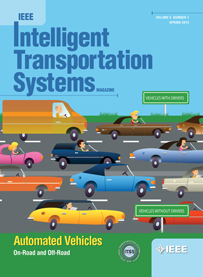
Fair and scalable electric vehicle charging under electrical grid constraints
2023ArticleJournal paper
IEEE Transactions on Intelligent Transportation Systems 24(12), pp. 15169-15177
Publication year: 2023
The increasing penetration of electric vehicles brings a consequent increase in charging facilities in the low-voltage electricity network. Serving all charging requests on-demand can endanger the safety of the electrical power distribution network. This creates the issue of fairly allocating the charging energy among electric vehicles while maintaining the system within safe operational margins. However, calculating efficient charging schedules for the charging stations bears a high computational burden due to the non-convexities of charging stations’ models. In this paper, we consider a tri-level system with electric vehicles, charging stations, and a power distribution system operator. The objective of each station is formulated as a max-min fairness, mixed-integer linear optimisation problem, while the network constraints are modelled using a second-order conic formulation. In order to tackle the computational complexity of the problem, we decompose it and use a novel approximation method tailored to this problem. We compare the performance of the proposed method with that of the popular alternating direction method of multipliers. Our simulation results indicate that the proposed method achieves a near-optimal solution along with promising scalability properties.

Distributionally robust trading strategies for renewable energy producers
2023ArticleJournal paper
IEEE Transactions on Energy Markets, Policy and Regulation 1(1), pp. 37-47
Publication year: 2023
Renewable energy generation is offered through electricity markets, quite some time in advance. This then leads to a problem of decision-making under uncertainty, which may be seen as a newsvendor problem. Contrarily to the conventional case for which underage and overage penalties are known, such penalties in the case of electricity markets are unknown, and difficult to estimate. In addition, one is actually only penalized for either overage or underage, not both. Consequently, we look at a slightly different form of a newsvendor problem, for a price-taker participant offering in electricity markets, which we refer to as Bernoulli newsvendor problem. After showing that its solution is consistent with that for the classical newsvendor problem, we then introduce distributionally robust versions, with ambiguity possibly about both the probabilistic forecasts for power generation and the chance of success of the Bernoulli variable. Both versions of the distributionally robust Bernoulli newsvendor problem admit closed-form solutions. We finally use simulation studies, as well as a real-world case-study application, to illustrate the workings and benefits from the approach.

The risk of missing data and subsequent incomplete data records at wind farms increases with the number of turbines and sensors. We propose here an imputation method that blends data-driven concepts with expert knowledge, by using the geometry of the wind farm in order to provide better estimates when performing nearest-neighbour imputation. Our method relies on learning Laplacian eigenmaps out of the graph of the wind farm through spectral graph theory. These learned representations can be based on the wind farm layout only, or additionally account for information provided by collected data. The related weighted graph is allowed to change with time and can be tracked in an online fashion. Application to the Westermost Rough offshore wind farm shows significant improvement over approaches that do not account for the wind farm layout information.

CRPS-based online learning for nonlinear probabilistic forecast combination
2023ArticleIn press/Available onlineJournal paper
International Journal of Forecasting, in press/available online
Publication year: 2023
Forecast combination improves upon the component forecasts. Most often, combination approaches are restricted to the linear setting only. However, theory shows that if the component forecasts are neutrally dispersed—a requirement for probabilistic calibration—linear forecast combination will only increase dispersion and thus lead to miscalibration. Furthermore, the accuracy of the component forecasts may vary over time and the combination weights should vary accordingly, necessitating updates as time progresses. In this paper, we develop an online version of the beta-transformed linear pool, which theoretically can transform the probabilistic forecasts such that they are neutrally dispersed. We show that, in case of stationary synthetic time series, the performance of the developed method converges to that of the optimal combination in hindsight. Moreover, in case of nonstationary real-world time series from a wind farm in mid-west France, the developed model outperforms the optimal combination in hindsight.

Chance-constrained economic dispatch of generic energy storage under decision-dependent uncertainty
2023ArticleJournal paper
IEEE Transactions on Sustainable Energy 14(4), pp. 2234-2248
Publication year: 2023
Compared with large-scale physical batteries, aggregated and coordinated generic energy storage (GES) resources provide low-cost, but uncertain, flexibility for power grid operations.While GES can be characterized by different types of uncertainty, the literature mostly focuses on decision-independent uncertainties (DIUs), such as exogenous stochastic disturbances caused by weather conditions. Instead, this manuscript focuses on newly-introduced decision-dependent uncertainties (DDUs) and considers an optimal GES dispatch that accounts for uncertain available state-of-charge (SoC) bounds that are affected by incentive signals and discomfort levels. To incorporate DDUs, we present a novel chance-constrained optimization (CCO) approach for the day-ahead economic dispatch of GES units. Two tractable methods are presented to solve the proposed CCO problem with DDUs: (i) a robust reformulation for general but incomplete distributions of DDUs, and (ii) an iterative algorithm for specific and known distributions of DDUs. Furthermore, reliability indices are introduced to verify the applicability of the proposed approach with respect to the reliability of the response of GES units. Simulation-based analysis shows that the proposed methods yield conservative, but credible,GES dispatch strategies and reduced penalty cost by incorporating DDUs in the constraints and leveraging data-driven parameter identification. This results in improved availability and performance of coordinated GES units.
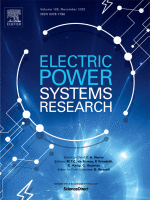
Variable heat pricing to steer the flexibility of heat demand response in district heating systems
2022ArticleJournal paper
Electric Power Systems Research 212, art. no. 108383
Publication year: 2022
